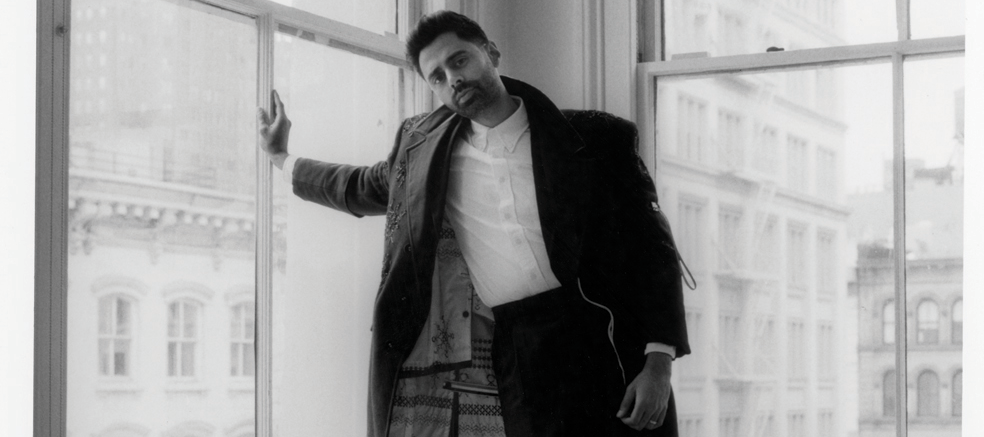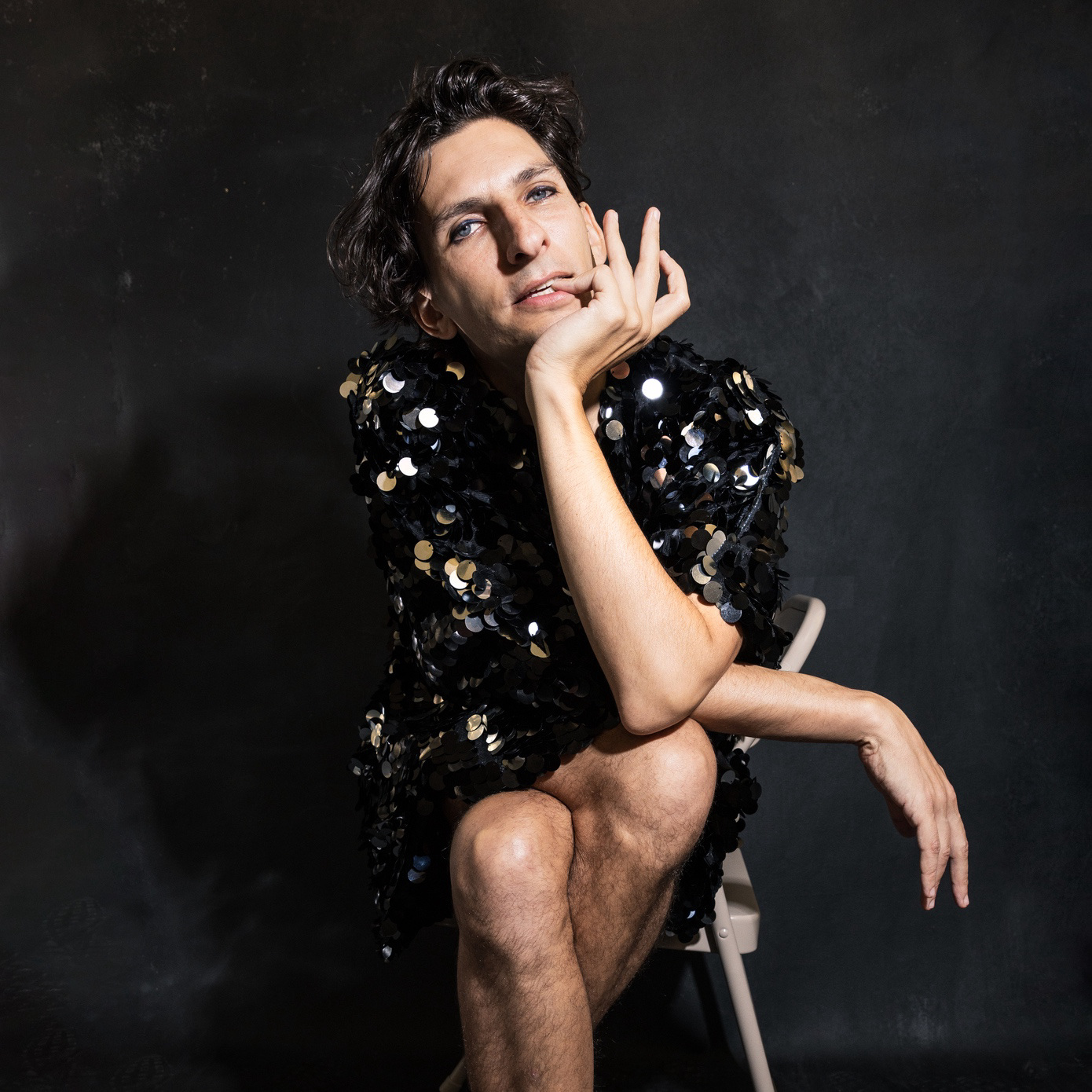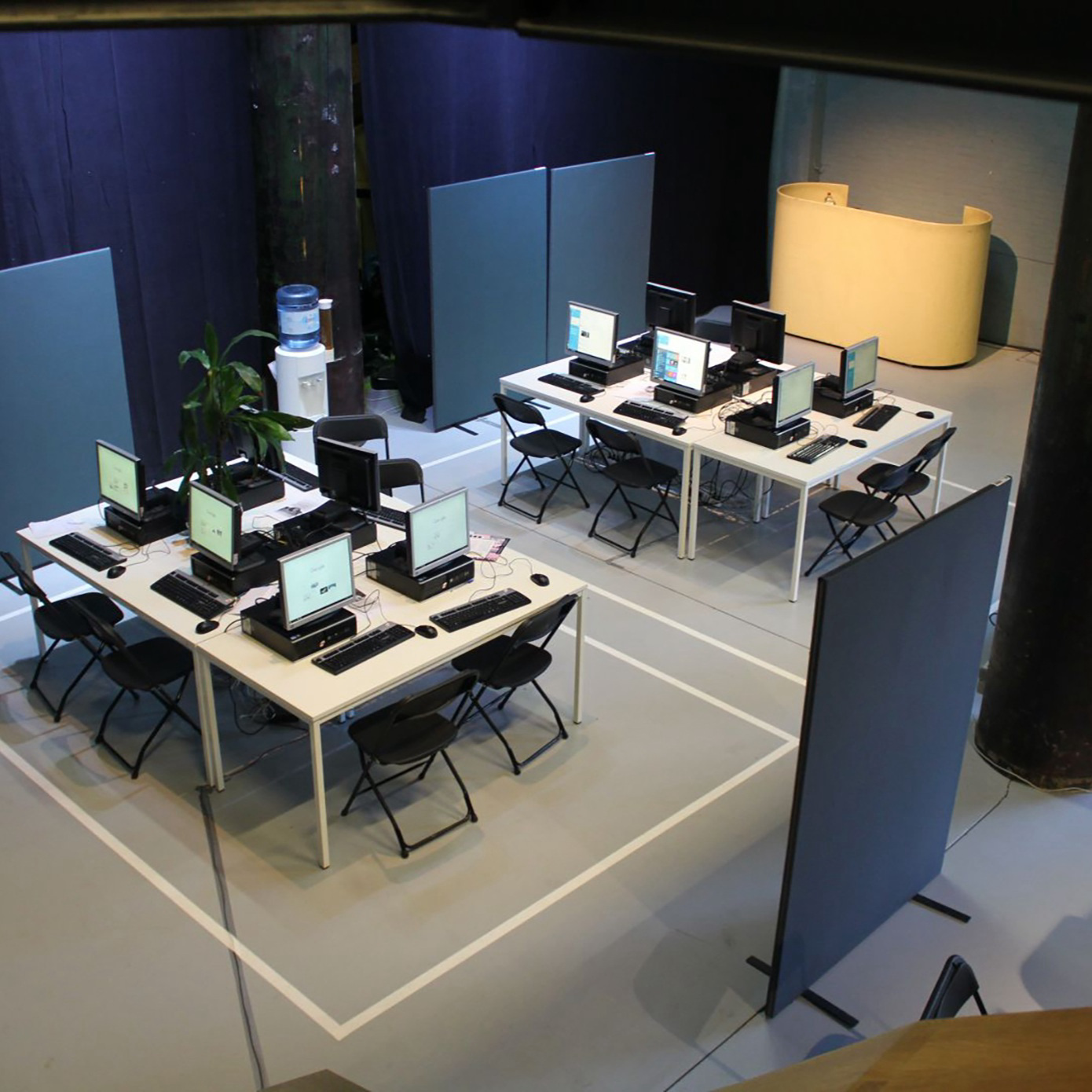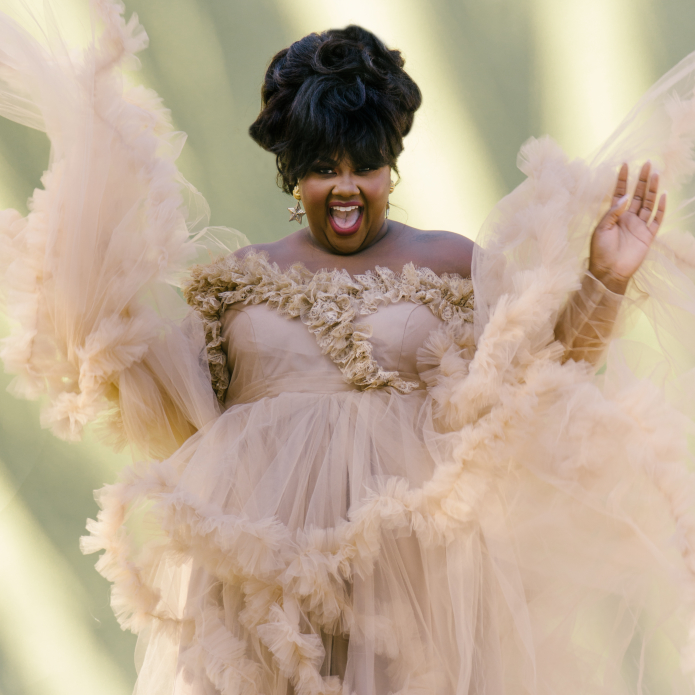Widely known for his work as a Daily Show alum, his award-winning stand-up special Homecoming King and fostering six seasons of his own show—Netflix’s Patriot Act—Hasan Minhaj has historically starred as himself, often in service to his audience’s understanding of the political and social world around them. He met viewers in the ways they were most accustomed: fast-paced, pointed and with a heavy reliance on visual storytelling and graphics as evidence. With his final season of Patriot Act having wrapped in the midst of the pandemic last summer, some of the audience was left wondering where and how he was going to appear next. Which prism was he going to focus his power through?
In the time since the last episode of that show, the 35-year-old comedian and actor has been branching out into new mediums. He has partnered with Cole Haan for a limited line of footwear. He has announced his participation in the Batman Unburied podcast, starring as The Riddler. He is one of the first faces you see as a new cast member on Season 2 of Apple TV’s The Morning Show. And he is currently in the thick of a national tour for his brand new one-man show, The King’s Jester, that stretches into spring of 2022.
These might all sound like deviations from the ways in which we have known him over the years, but for Hasan this wider scope is the result of a renewed focus on the things most important to him and a reshaped approach toward creating a brighter future. These days, he’s equal parts microscope, telescope and megaphone. A juggling act, with all of his senses trained on finding the light within himself and among the people, and then reflecting it out for all to see.
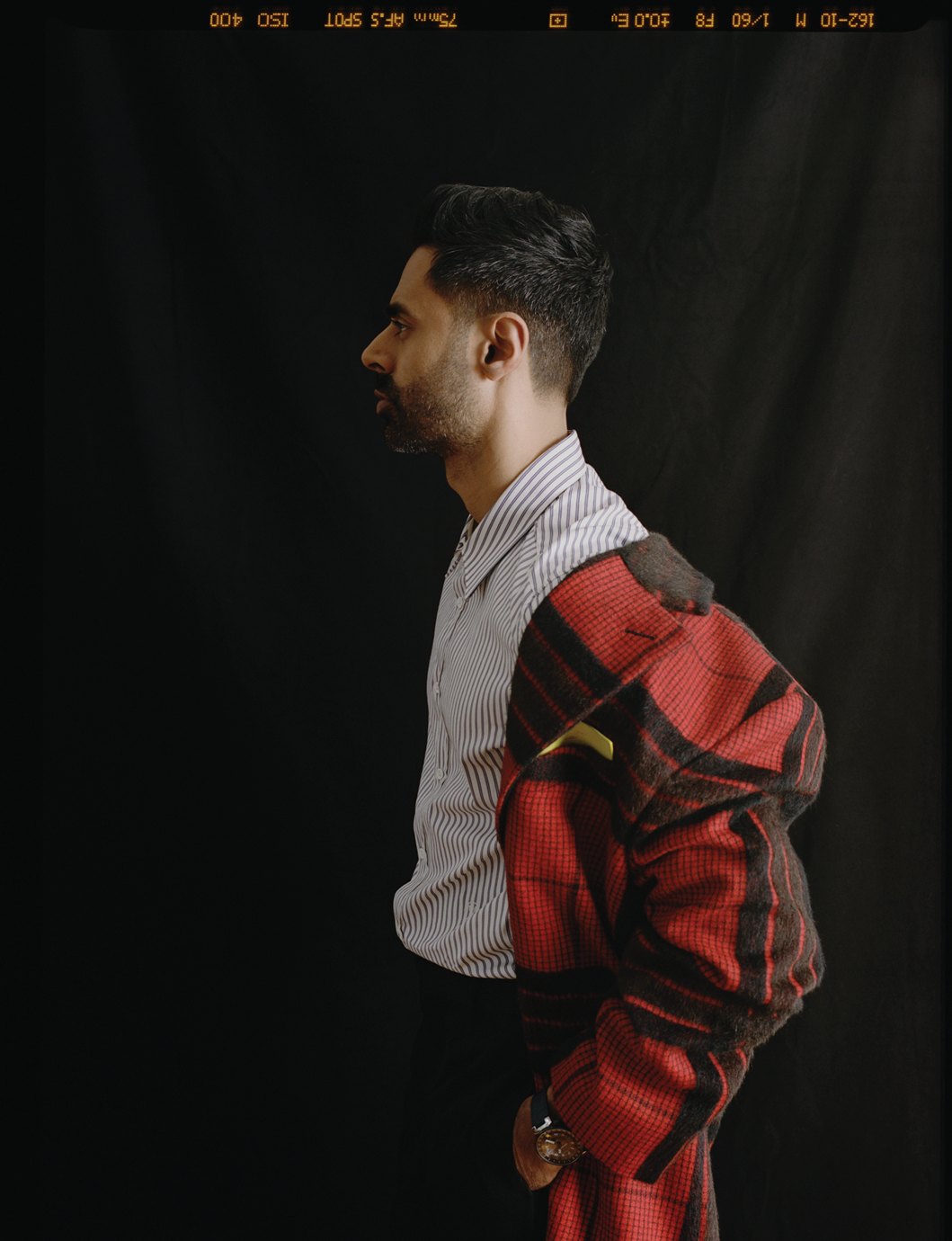
Brandon "Jinx" Jenkins: I rewatched 2017’s Homecoming King. We were living in a completely different world then. So much has changed since that comedy special.
Hasan Minhaj: The world, the country that we live in and the conversation that’s happening in the country is completely different.
BJ: How have you changed since then? How has your stage act changed?
HM: The big buckets I’m hitting are fertility, fatherhood, and freedom of speech. One of the things that’s the undercurrent of my work is family, and not to be corny about it, but it does allow me to speak with a level of authenticity. And what I love most about personal storytelling is even though it’s just my experience, at the very least I’m providing a sincere perspective that’s authentic. There’s so much now, in the media, that is a regurgitated opinion, that they’re leaning on the current meta-narrative. I’m at that point in art where I’m like, “I don’t give a fuck about what your opinion is, because I know you’ve cross-checked it with what blue-check Twitter has told you.“ Instead, tell me your story. Tell me what you’ve done.
BJ: Word.
HM: My evolution after Patriot Act was, “Alright, this is my next big story telling show.” And I could totally do a deep dive on a myriad of political topics. What I would rather do, just like with Homecoming King, is let the backdrop be the personal stakes of my life and everything that’s gone into that over the past few years.
BJ: Is there a thing that you thought you felt confident about back then, a position in the last couple of years, that has changed? Something that reflects through your comedy differently now because of what you’ve been through as a person, what the world has been through?
HM: I’ve been thinking about this a long time and it doesn’t sound right to say, but... it’s authentically true to me. I feel we’ve lived through this pandemic and I felt this deep sense of digital disillusionment. And I get this feeling all the time, bro. It’s like... I don’t know if you feel this... I can’t change the world, but I can change my world.
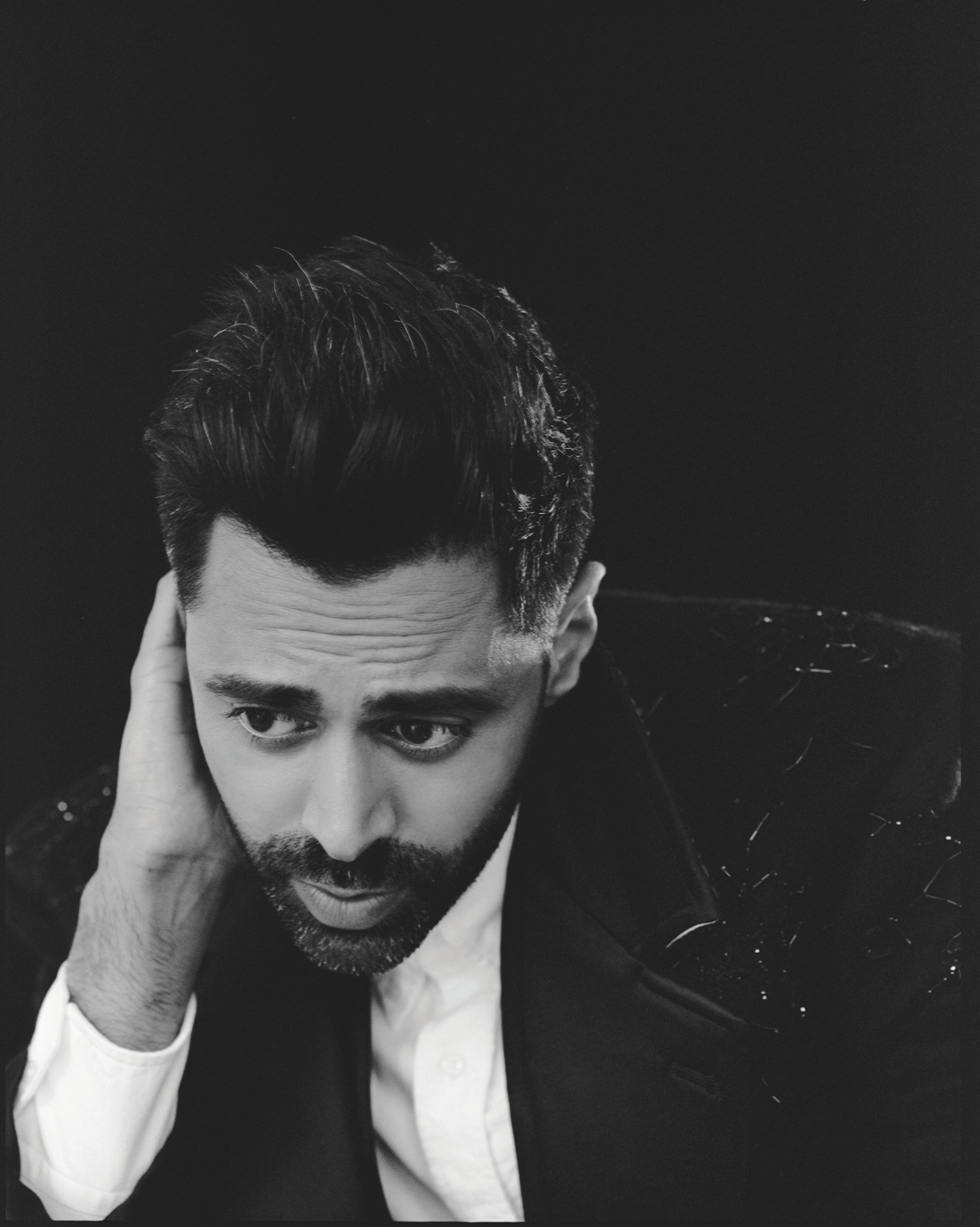
BJ: I’m just now getting to that point in my own life. What’s set that in motion for you?
HM: Bro, I’ve got into kerfuffles with every autocrat you could think of.Everybody knows my international beef and everything that came of it. I’ve put my family through a lot. I’ve put people that I love through a lot through the opinions and the positions that I’ve taken. A lot of the things that I’ve talked about on the show, it’s still a year plus since the show ended and a lot of those things haven’t changed at all. You know what I mean? Insulin pricing is still the same. Healthcare system is still broken. College debt is still exacerbated, even worse. Mortgage crisis, rent forgiveness, all these things we were talking about on [Patriot Act]. And all the enemies have only gotten bigger.
BJ: They got bigger. They got stronger.
HM: You know what I mean? They’ve metastasized in a way that... I think even my teacher, Jewish Yoda, Jon Stewart, would have never imagined from the days in which he was early reporting. And one of the things that I realized is, “How do I take all this craziness and not just descend into madness?” And the only thing that saves me, I think, is grounding myself in the things that I have agency over. And that’s being with my kids and being like, “Okay, this is my little franchise.”How can I shape the world through this, to the best of my ability? And that doesn’t mean that I don’t care about all of those other things we’re dealing with, but I did have to close a few tabs.
BJ: Yeah, word.
HM: And I think that’s being rebranded as self-care, this, that and the other.For me, I’ve played it as an agency proposition of like, “What can I immediately control?” Because my energy and my time is finite and I can’t be launching digital drone strikes with bad-faith actors on the Internet all day, every day. That’s not going to be it, you know? I’m not saying I have the answers. I’m saying, this is the conclusion that I’ve arrived at, as of right now, in this moment, as we’re talking to each other.
BJ: You and I spoke at the top of the pandemic. At the time, I remember you saying something like “Some people ask me why I don’t have a podcast or do more things.” And you said, “I like to work and focus on my stuff and do that well. I don’t necessarily need to be everywhere.” Something to that effect.But here we are, over a year later, and you’ve joined the cast of The Morning Show, you’ve dropped a shoe collab with Cole Haan, you’re starring on a Batman podcast and you’re back on the road.
HM: But I’ve been gone for a year and a half.
BJ: True. But you’ve picked up more things, and I’m wondering what that’s a sign of.
HM: World building, man. World building. Each of those projects represents something. And I’ve taken a great deal of inspiration from the Black performers that have come before me, Black comedians and Black artists have given us diaspora kids the blueprint. For the longest time, new, brownAmerica, Asian America, we’ve been deemed economically relevant, but culturally irrelevant. But we’re starting to see things change. We’re now fighting for cultural relevance. We’re imprinting our fingerprint on American popular culture, which does matter. It’s a powerful thing. You can tell it resonates, it humanizes people.It makes them feel important, but it represents possibility. And I think the way Black America has done that in music and popular culture and movies—we have started to take the pages from that, continued to add our chapter to the narrative, which is making American popular culture, I believe, richer. It’s one of the few soft powers we actually still have that is great, that I’m proud of. And, each of these projects had to represent possibility.
David Goyer is one of my favorite writers of all time, he wrote the Dark Knight trilogy. He is an incredible, not only film writer, but comic-book writer. And the fact that when they made Batman Unburied they cast Winston Duke as Batman... I was like, OK, I gotta be a part of this. I’ve gotta work with David and I gotta be Edward Nygma [The Riddler]. Because I never thought that would be possible. For me bro, it’s really like that idea of possibility and cultural relevance.
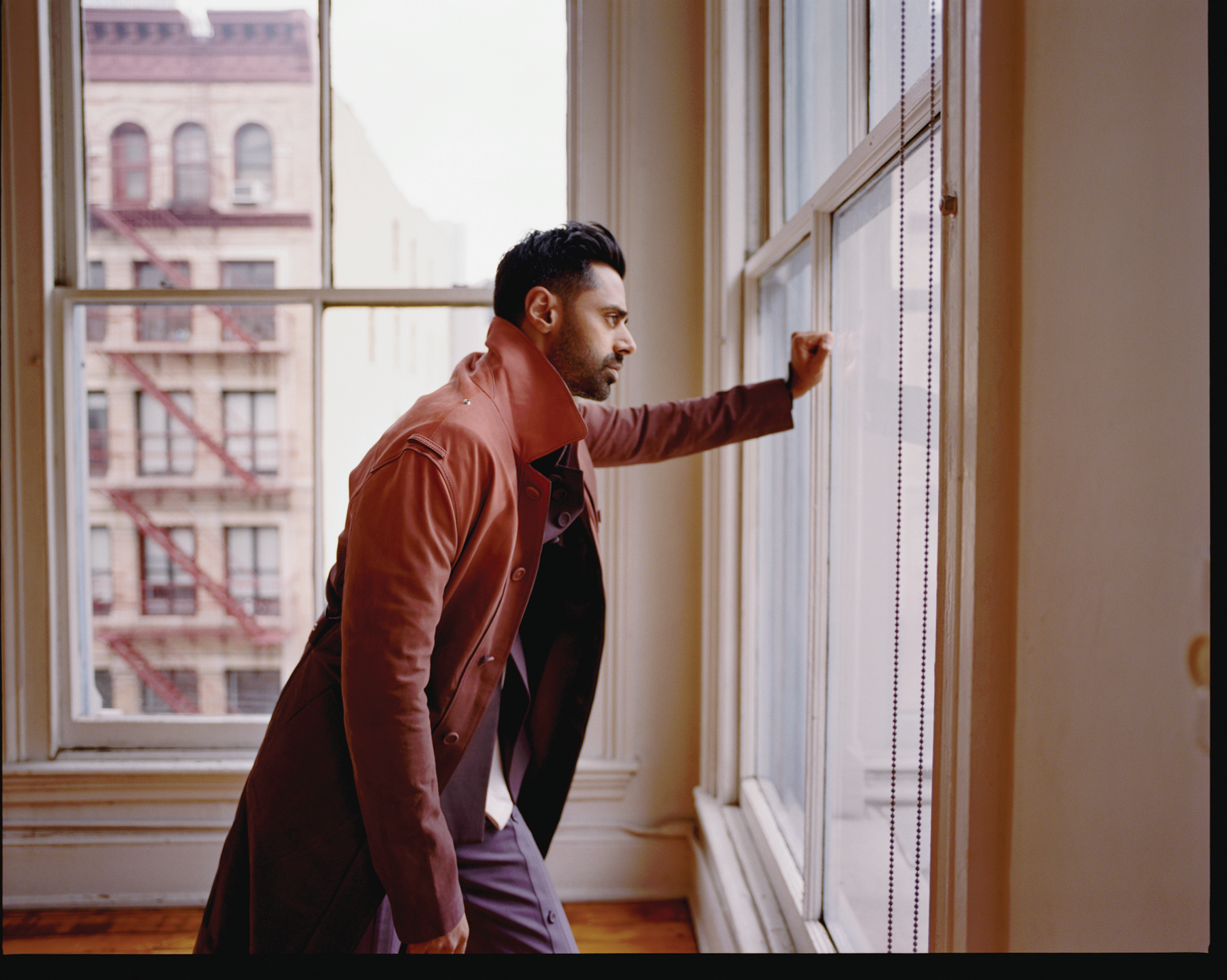
BJ: Are you finding that in your other projects?
HM: The Morning Show is that same thing. Like how crazy would it be if I saw somebody who looked like me on this big, splashy, sexy, one-hour drama with Reese Witherspoon and Jennifer Aniston, who so represent American cinema? They’re America’s sweethearts. And Apple has spared no expense building out this show. For me it was one of those things, like, I’m going to take my swing now. But it’s no different than what I’ve done in other parts of my career. The White House Correspondents’ Dinner was that same thing for me. I’ve never seen somebody who looks like me stand on that stage and poke fun at the president and the media. For me, it’s all about that. Just that stretching of culture and representing possibility for my people.
BJ: I’m hearing everything you just said, and I’m also considering prior statements where you’ve said the Chris Rocks, the Chappelles, are some of your idols. They’re something beyond comedians. They’re like planets, massive entities. And I look at what’s going on with you... you’re not just stacking up IMDb credits. Something is happening.
HM: They’ve brought people into their orbit. I think I represent something for a lot of people and it didn’t really click for me at first. It started clicking for me around the time I was doing Patriot Act. I would see the audience, they’d go, “Yo, you remind me of my cousin. Yo, you remind me of someone I went to high school with.” And I’m like, “Bro, are you kind of dissing me? Do I look like Pratik you went to high school with? Are you basically saying I’m average?” And I used to kind of have this insecurity about it, but I actually realized that is my superpower.
BJ: How so?
HM: What they’re saying is “Yo, you look like someone I was in civics class with my junior year. And the fact that you made it has this level of relatability.” But, furthermore, what that’s given me an opportunity to do is bridge these two worlds. I’m the Sunday school Muslim kid that grew up in Sacramento, in the Desi community, then was knighted by Jon Stewart, then was able to go on to Netflix, was able to go to the Correspondents’ Dinner and now do work with David Goyer, Reese Witherspoon and Jennifer Aniston, do shoe collabs... To me it’s that ability. Can I bring our story from the margins to the mainstream?
BJ: Okay, but the thing about being in that position, is this looming idea of “keep it 1,000” as you ascend. You know, like get on, but don’t front.
HM: One of my first principles is light over heat. There’s a lot of heat out there: there’s a lot of just ephemeral social-media content that’s not deep in nature. But every once in a while there’s something that just represents true light that really resonates with people.
BJ: The things that connect with us, connect us as people?
HM: You see examples of it, Ted Lasso is that. Ramy resonated with me like that. It was so funny. I would run some episodes back. To me, it was light over heat. There’s just so much heat—in Hindi we call it hungama, which means just craziness. Kind of just Jake Paul crazy. America is hungama. Whoever controls the circus hungama controls the media narrative, but I’m a light person. Like, what’s the core ontological truth of what you’re saying? There’s certain scenes that are in The King’s Jester that have that. Which is why I’m talking about fatherhood, family, freedom of speech. Things we’ve been dealing with forever. That is what I’m chasing.

